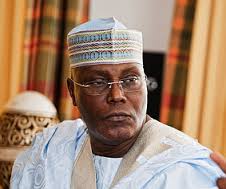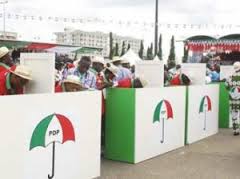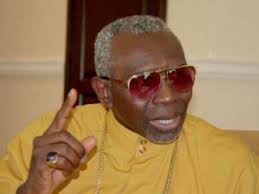Former Vice President Atiku Abubakar and APC presidential aspirant, in this piece, analyses the measures taken by the authorities to save the economy.
The Monetary Policy Committee of the Central Bank of Nigeria rose from its meeting of 25th November, 2014 to announce a string of measures ostensibly to reduce pressure on the Naira and achieve macroeconomic stability. The committee considered vulnerabilities in the domestic as well as the exposure to changes in the global economies.
In the communiqué issued by the committee, it claimed that “the domestic economy is strong and resilient in the face of strong global head winds”. The bank also projected a 7 per cent overall growth of the economy in 2014, a figure better than the 5.5% recorded in 2013. The committee equally noted that “the robust expansion in domestic output in the third quarter of 2014 against tepid growth in the global economy was anchored by the improved performance in services, agriculture, trade and industry”.
These are contradictions that are not consistent with the prevailing realities on ground and neither can this be the true premise for justify the drastic panic measures being taken.
The committee claimed that a total of 600,000 jobs were created in the second and third quarters of 2014 and that most of these jobs were created in the informal sector. In reality, most of these jobs are mere hand-outs based on fanciful schemes with attractive acronyms. They add very little to the National Productivity Index and have been designed for cosmetic political intentions.
The claim by the CBN that under the 200million Naira Commercial Agriculture Credit Scheme, 166,790 jobs have been created since 2009 is despicable. This amounts to creating 33,000 jobs per year at the cost of 1.2million Naira per each creation. This is probably the most expensive way of creating jobs in agriculture anywhere in the world.
The point that I am trying to make is that the managers of our economy should be sincere with themselves and be sincere with Nigerians. Hiding under the umbrella of international economic development trend to justify our current predicament is misleading and deceitful.
The economy is not as strong as they make us believe and the “global head winds” cannot fully explain our dilemma. Key vulnerabilities in the economy have been noticed a long time ago.
Months ago, I warned that that the economy was headed for hard times if changes were not made immediately. My position was informed by a number of reasons which I observed at that time namely:
I. Uncontrolled spending and lack of discipline in budgetary implementation both of which propelled the nation into foreign and domestic debt portfolios.
Foreign debt ($3.9 billion in 2007 to $9.3 billion now).
Domestic borrowing (now N8.9 trillion).
II. Rapid depletion of our external reserves at a height of $68 billion under Yar’Adua in 2008 to as low as $36.75 billion at the end of October 2014.
III. Misapplication of the Excess Crude Account which stood at $22 billion in 2008 but now as low as $470m with nothing much to show for it in terms of investment with recoverable revenues
IV. Sluggish effort at diversifying into other non-oil sectors of the Nigerian economy with the attendant exposure to the vagaries of global economy.
V. The unacceptable cost of governance in which a disproportionate percentage of the budget is being allocated to recurrent expenditures.














